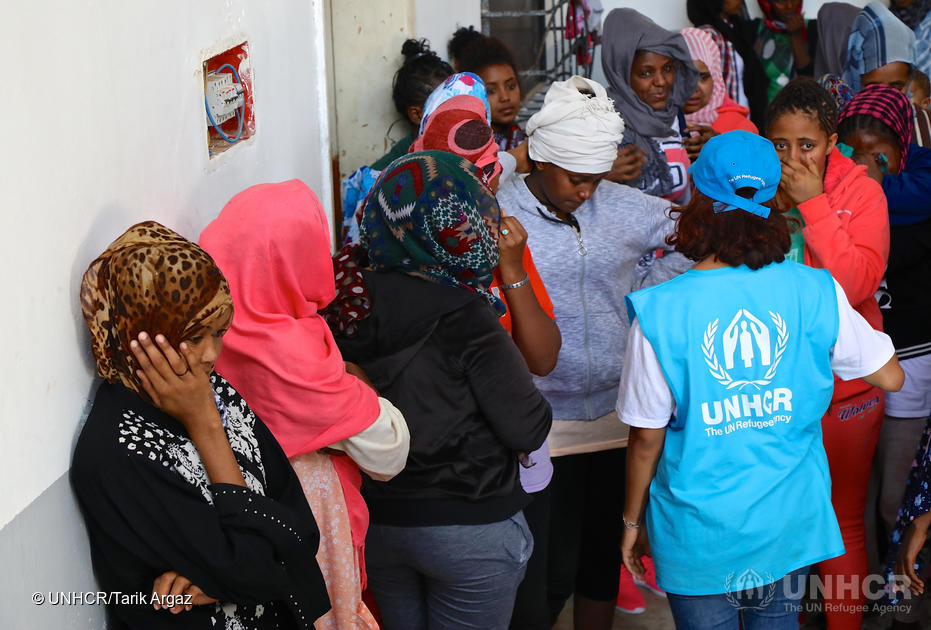UNHCR, the UN Refugee Agency is calling for refugees and migrants in detention centres in conflict areas in Tripoli to be immediately evacuated to safety, after an airstrike hit a target less than 100 metres away from Tajoura detention centre, where over 500 refugees and migrants are being detained. More […]

Refugees and asylum-seekers are processed at Tripoli International Airport before an emergency evacuation flight to Niamey, Niger, May 2018.
© UNHCR/Tarik Argaz
UNHCR, the UN Refugee Agency is calling for refugees and migrants in detention centres in conflict areas in Tripoli to be immediately evacuated to safety, after an airstrike hit a target less than 100 metres away from Tajoura detention centre, where over 500 refugees and migrants are being detained.
More than 500 people are currently being held in Tajoura, two of whom were injured and required medical assistance. When the hostilities intensified late last night, refugees and migrants were trapped inside and unable to flee to safety.
Given the ongoing violence in Tripoli and the clear risk to lives, it is now more urgent than ever that those responsible for these centres allow the immediate release of people being held there so they can be moved to safety.
“The risks are simply unacceptable at this point,” said Vincent Cochetel, UNHCR Special Envoy for the Central Mediterranean. “People inside detention centres in Tripoli are facing ever-increasing dangers, making it vital that we immediately move them out of harm’s way.”
Since the onset of the conflict in Tripoli last 4 April, UNHCR has relocated over 1,200 persons from high-risk locations to safer areas. However, some 3,460 refugees and migrants remain in detention centres near to conflict-affected areas.
No evacuations have taken place out of Libya since 146 people were relocated to Italy on 29 April. UNHCR urges the international community to come forward with further offers of humanitarian corridors and relocation.
UNHCR is also concerned at the use of detention centres for storing weapons and military equipment. Utilising civilian infrastructure in this manner constitutes a violation of international humanitarian law and must be avoided at all costs.
For more information on this topic, please contact:
Share on Facebook Share on Twitter